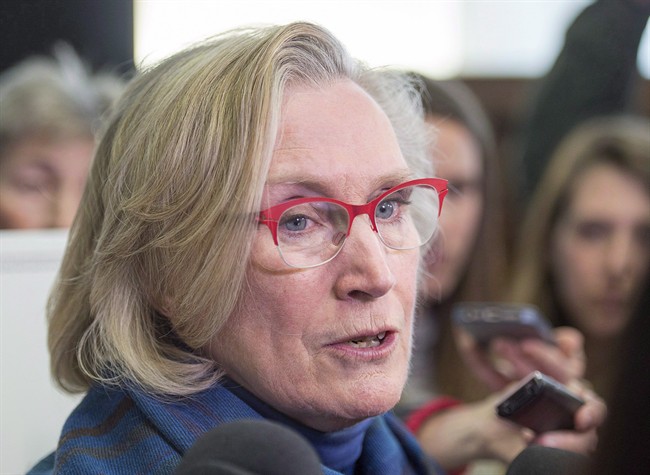OTTAWA – The denial of health services to anyone because of where they live or who is paying is unacceptable in Canada, Indigenous Affairs Minister Carolyn Bennett said Friday after meeting with First Nations leaders and her provincial and territorial counterparts.

“What is medically necessary is medically necessary and it shouldn’t matter your postal code or which government department or which jurisdiction is paying for it,” Bennett said.
“We have got to do better.”
Bennett made the comments after meeting formally for the first time with indigenous, provincial and territorial leaders to map out how to rebuild the federal government’s relationship with First Nations ahead of an indigenous summit set for September.
WATCH: First Nations say ‘needless deaths’ occurring in communities due to lack of medical access

Her statement also came amid calls from opposition critics and medical practitioners for an overhaul of the First Nations and Inuit health branch at Health Canada.
New Democrat MP Charlie Angus says Health Canada documents reveal indigenous Canadians are being denied free access to basic tests under the system.

Get weekly health news
“Breast screening, mammograms, biopsies — they’re normal, everyday medical procedures,” Angus said Friday in the Commons.
“Yet we have documents show that her bureaucrats are interfering with doctor-ordered mammograms to deny these services to indigenous women.
“And they’re cancelling audiology tests for indigenous children.”
An Ontario physician who treats First Nations patients in communities near Sioux Lookout, Ont., told a parliamentary committee in April that people living on reserve receive a standard of health care that is far inferior to what other people get.
READ MORE: Health care on remote First Nations ‘far inferior’, doctor says
Bennett, a medical doctor herself, said the government needs to treat everyone who seeks medical care equally.
“What is medically necessary is medically necessary and it shouldn’t matter your postal code or which government department or which jurisdiction is paying for it,” she said.
“We have got to do better.”
Bennett also told the inaugural Federal-Provincial-Territorial-Indigenous Forum that the Liberal government plans to make significant changes to the system designed to protect vulnerable indigenous children.
“We will be overhauling the child welfare system so that we aren’t apprehending so many children, and how we can keep children safe,” she said at the conclusion of the meeting.
“But culturally safe as well in terms of their futures.”
Those comments follow accusations from First Nations advocate Cindy Blackstock that the federal government is still racially discriminating against First Nations children in its delivery of services on reserve.
READ MORE: ‘We are in a state of shock:’ Ontario First Nations declare health emergency
Blackstock told a Commons committee the government has presented no evidence that First Nations agencies are somehow incapable of providing their own services, and therefore can’t be treated equally.
In April, the Canadian Human Rights Tribunal ordered the federal government to provide detailed calculations and evidence on why it believes its last budget meets its child welfare obligations.
The tribunal orders followed its January judgment that found the federal government discriminated against children on reserves in its funding of child welfare services.
The inadequacy of child services is one of several issues Assembly of First Nations National Chief Perry Bellegarde said he would raise when he meets Monday with Prime Minister Justin Trudeau.
“The short-term, medium and long-term (child welfare) strategies that have to be put in place, that will be one of the items to be talked about on Monday,” said Bellegarde.
Bellegarde was invited to join Attawapiskat First Nation Chief Bruce Shisheesh, who asked for the meeting to discuss the suicide crisis facing his community.







Comments